Understanding Truck Accident Lawsuits: Liability, Verdicts and Settlements
Last updated Thursday, November 30th, 2023

Navigating the aftermath of a truck accident can be a daunting experience. With the potential for serious injuries, complex liability issues, and the involvement of multiple parties, it’s crucial to have a clear understanding of the legal landscape in truck accident lawsuits. This comprehensive guide will provide you with valuable insights into the causes of truck accidents, the legal process involved in a truck accident lawsuit, and how to effectively navigate insurance issues. Let’s embark on this journey to better understand your rights and options in the wake of a truck accident.
Key Takeaways
- Common causes of truck accidents include driver fatigue, equipment malfunction & weather/road conditions.
- Liability in truck accident cases may be shared among various parties such as the driver, company & government entity.
- A qualified truck accident attorney can provide assistance with evidence collection and settlement negotiation to ensure victims receive fair compensation for their losses.
Contact us today and we will help you get the compensation that you deserve. Contact us today and we will help you get the compensation that you deserve.Get Your FREE Case Review Today
Get Your FREE Case Review Today
Common Causes of Truck Accidents
A myriad of factors, when it comes to truck accidents, can influence the determination of liability and pursuit of compensation. According to truck accident law, some of the usual causes of truck accidents include driver fatigue, equipment malfunction, and weather or road conditions.
Driver Fatigue and Substance Abuse
Many truck accidents are significantly influenced by driver fatigue. Factors contributing to driver fatigue may include neglecting to observe posted speed limits, navigating curves at excessive speeds, and not adequately monitoring blind spots. Federal regulations restrict the amount of driving time for commercial truck drivers. Property-carrying drivers are allowed to drive for up to 11 hours after a consecutive rest period of 10 hours. Trucking companies are also required to test their drivers for alcohol and drug use, with carriers conducting periodic random tests and testing any driver involved in an accident involving a fatality.
Irregular work shifts can further exacerbate driver fatigue, disrupting the body’s natural sleep-wake cycle and leading to reduced alertness and an increased risk of accidents.
Equipment Failure and Maintenance Issues
Truck accidents are also significantly influenced by equipment failure and maintenance issues. Potential causes of equipment failure may include inadequate maintenance or defective components, with the latter often resulting from manufacturing issues and design mistakes. Poor maintenance practices can lead to truck accidents from issues such as insufficient tire maintenance, brake failure, defective lights, steering system failure, and failed suspension.
Weather and Road Conditions
Yet another common contributor to truck accidents is weather and road conditions. Climatic conditions, malfunctioning traffic signals, and deficient road design can all contribute to semi truck accidents. In 2019, large trucks were involved in approximately 510,000 accidents, with 23% of those occurrences resulting in injury or death.
With semi trucks typically averaging between 10,000 and 25,000 pounds when not carrying a load, the potential for serious injuries and property damage in a semi truck accident is immense.
Liability in Truck Accident Cases
The complexity of determining liability in a truck accident case stems from the fact that multiple parties may bear responsibility for the victim’s damages. These parties may include:
- The driver
- The truck company
- The maintenance company
- The loading company
- The truck manufacturer
- A government entity
- Another driver
Driver Liability

- speeding
- reckless driving
- distracted driving
- driving under the influence of drugs or alcohol
- fatigue or drowsy driving
- improper lane changes
- failure to obey traffic laws
Drivers are also responsible for the upkeep of their trucks and the cargo they transport. This includes training in:
- Vehicle inspections
- Defensive driving
- Motor carrier safety regulations
- Trip planning
- Cargo handling
- General maintenance procedures
Trucking Company Liability
Another aspect requiring careful consideration in truck accident cases is trucking company liability. Whether a driver is an employee or an independent contractor, the trucking company may be held liable if it is demonstrated that the driver was operating under the direction of an employer at the time of the accident.
Trucking companies must also maintain proper insurance coverage, with minimum liability insurance requirements varying from $750,000 to $5 million, depending on the type of freight being transported.
Manufacturer and Cargo Loader Liability
Manufacturer and cargo loader liability can also be relevant in certain truck accident cases. Defective parts and the improper loading or securing of cargo can contribute to accidents, with liability attributed to the manufacturer and distributor of the defective part or system.
Federal regulations, such as the Federal Motor Carrier Safety Administration’s cargo securement rules, also govern cargo loading for trucks, ensuring that cargo is properly loaded and secured to prevent accidents.
The Legal Process of a Truck Accident Lawsuit
The legal process of a truck accident lawsuit, which involves multiple steps from evidence collection to settlement negotiations or trial, can be a strenuous journey. Demonstrating that factors such as fatigue, equipment malfunction, or weather conditions had an impact on the driver’s focus, proficiency, or response time when the accident occurred can be challenging.
Collecting Evidence

- Obtain witness statements and contact information.
- Procure evidence from the trucker and trucking company.
- Conduct thorough investigations.
- Gather physical evidence such as photos and videos.
- Acquire relevant documents like medical records.
By following these steps, you can ensure that you have a strong case in your truck accident lawsuit.
Utilizing high-tech devices such as dash cameras and black boxes can also provide valuable evidence to support the case, as they capture crucial data on the truck’s operation, which can be instrumental in reconstructing the accident.
Filing a Claim
When filing a claim in a truck accident lawsuit, liability determination and damage calculation – which includes medical expenses, lost wages, and non-economic damages such as pain and suffering – are involved. It is vital to have all necessary documents in order, such as police reports, medical records, diagnostic images, hospital bills, photographs of visible injuries, personal injury journal entries, cell phone records, documentation from the accident scene, and documentation of property damage.
Negotiating Settlements and Going to Trial
Once the claim is filed, the next step is to either negotiate a settlement with the responsible party or proceed to trial. Factors to consider when deciding whether to accept a settlement or proceed to trial include:
- The strength of the evidence
- The amount of damages sought
- The amount of the settlement offer
- The cost of going to trial
- The likelihood of success at trial
These factors will help determine the best course of action for your case.
In a truck accident lawsuit trial, the process involves:
- Jury selection
- Opening statements
- The presentation of evidence
- Examination and cross-examination of witnesses
- Closing arguments
- Jury deliberation and verdict
However, not all truck accident lawsuits go to trial, as many cases are resolved through settlement negotiations before reaching the trial stage.
Compensation in Truck Accident Lawsuits
Compensation sought in truck accident lawsuits typically comprises:
- Medical expenses
- Lost wages
- Non-economic damages, including pain and suffering, emotional distress, humiliation, reputational damage, and loss of enjoyment of activities, among others.
The amount of compensation awarded in truck accident lawsuits can be influenced by several factors, including the severity of injuries, shared fault, and insurance policy limits.
Types of Damages
In truck accident lawsuits, the types of damages available include:
- Medical expenses: calculated by evaluating the actual cost of medical treatment and multiplying it by a pre-determined multiplier, which accounts for factors such as the severity of the injuries and the effect on the victim’s life.
- Lost wages: determined by ascertaining the amount of income the injured party would have earned had they not been involved in the accident.
- Non-economic damages: include pain and suffering, emotional distress, humiliation, reputational damage, loss of enjoyment of activities, and worsening of prior injuries.
Factors Affecting Settlement Amounts
The settlement amount in a truck accident case can be influenced by several factors, including:
- The severity of injuries: Generally, higher settlement amounts are awarded for more severe injuries due to the greater harm suffered by the victim.
- Shared fault: If multiple parties are found to be at fault for the accident, the plaintiff’s compensation may be reduced based on the percentage of fault assigned to each party.
- Insurance policy limits: The settlement amount may be limited by the insurance policy, as the plaintiff may not be able to receive the full amount of compensation sought if the damages exceed the policy limits.
These factors can all impact the final settlement amount in a truck accident case.
Contact us today and we will help you get the compensation that you deserve. Contact us today and we will help you get the compensation that you deserve.Get Your FREE Case Review Today
Get Your FREE Case Review Today
Navigating Insurance Issues in Truck Accident Cases
Handling insurance issues, which involve determining the required liability coverage by trucking companies and interacting with insurance adjusters from the insurance company throughout the legal process, is a fundamental part of truck accident cases.
Trucking companies are mandated to possess liability insurance to compensate for any damages incurred by their drivers, with minimum amounts varying from $750,000 to $5 million.
Insurance Requirements for Trucking Companies
The insurance requirements for trucking companies differ depending on the type of freight being transported. For non-hazardous freight, the liability insurance limit is $750,000, while the requirement can range from $750,000 to $5,000,000 for other commodities.
In addition, motor carriers who haul household goods are mandated to have cargo insurance with a minimum coverage of $5,000 per vehicle. It is essential to be aware of these requirements to ensure proper coverage is maintained and to understand the impact of low liability insurance on compensation in truck accident cases.
Dealing with Insurance Adjusters
Dealing with insurance adjusters can be a challenging aspect of truck accident cases. Insurance adjusters are not advocating for your interests but instead are attempting to minimize the amount of money they must disburse for the claim. It is crucial to understand their tactics and strategies and to be prepared to negotiate.
Consulting with a truck accident attorney before accepting a truck accident settlement offer from an insurance adjuster can ensure that you receive a fair and equitable settlement that compensates you adequately for your injuries and losses.
Hiring a Qualified Truck Accident Attorney
Engaging a qualified truck accident attorney, such as a personal injury lawyer, is a vital step towards seeking compensation for your truck accident claim. A knowledgeable attorney can help you navigate the complex legal landscape, gather evidence, negotiate settlements, and represent your interests in court.
But how do you find the right attorney for your case?
What to Look for in a Truck Accident Lawyer

- Experience in handling insurance and multi-defendant cases
- Background in truck accident law
- Proven success track record
- Researching their success rate
- Checking their experience
- Reading client reviews and testimonials
- Verifying their credentials
These factors can help you choose the right attorney for your case.
Remember, a successful truck accident attorney should have:
- A strong understanding of truck accident laws
- The ability to gather and present evidence
- Negotiation skills for settlements
- Litigation experience in court
The Role of a Truck Accident Attorney
By aiding in evidence collection, settlement negotiation, and client representation in court, a truck accident attorney plays an integral role in the legal process. They can help you with:
- Understanding your rights and the potential value of your claim
- Guiding you through the process of filing a claim
- Collecting evidence
- Dealing with insurance adjusters
A truck accident attorney is there to support you and ensure that you receive the compensation you deserve.
Ultimately, a qualified truck accident attorney will work tirelessly to ensure that you receive the compensation you deserve.
How much are most truck accident settlements?
On average, truck accident settlements often exceed $10,000 and may range up to tens of thousands to hundreds of thousands of dollars.
What is the largest trucking settlement?
The largest trucking settlement on record is a staggering $281 million awarded following an incident in which a truck’s shaft detached and killed the driver. A second large settlement of $101 million was won after a tractor-trailer operated by an impaired truck driver collided with the victim’s vehicle.
Can truck drivers get sued for hitting other people on the road?
Yes, truck drivers can be sued for hitting other people on the road if they are found to be at fault. They may be liable for damages if they were negligent by driving while impaired, aggressively, or failing to maintain their vehicle or cargo.
What is the biggest 18-wheeler lawsuit in the US?
In July, Werner Enterprises settled for $150 million in a lawsuit involving the fatal crash of an 18-wheeler that killed two children in Texas. This is the largest 18-wheeler wreck settlement in U.S. history, attributed to the alleged gross negligence of Werner.
What are the common causes of truck accidents?
Driver fatigue, equipment malfunction, and weather or road conditions are the most common causes of truck accidents.






